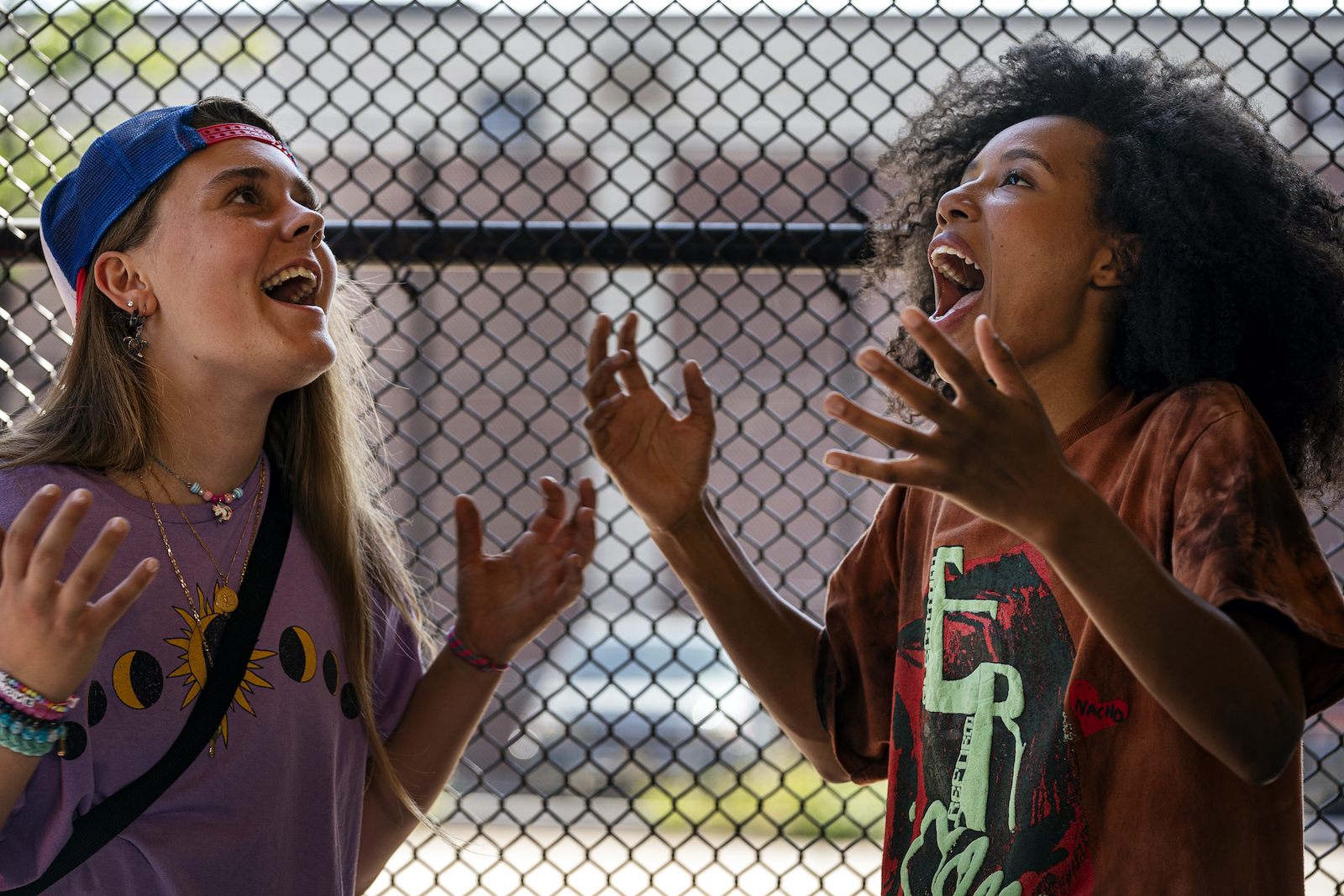
It’s no revelation that people crave vulnerability. They long to be seen, and to be immersed in a reality that they can relate to. The windows of social media have drawn back the curtains on what were previously regarded as private moments, but now the whole world is in your backyard; all of humanity, your neighbor. Media and entertainment are likewise shifting into modes of transparency: cue the innovation of one director bringing her documentary-style fiction to our screens.
There’s a new series on HBO that people are flocking toward, soaking up the community it illuminates and the intimacy it inspires. Betty is empowering and light hearted, badass and real. Woven among gorgeous shots of New York city is a storyline of support among a group of five, impressive female skaters.
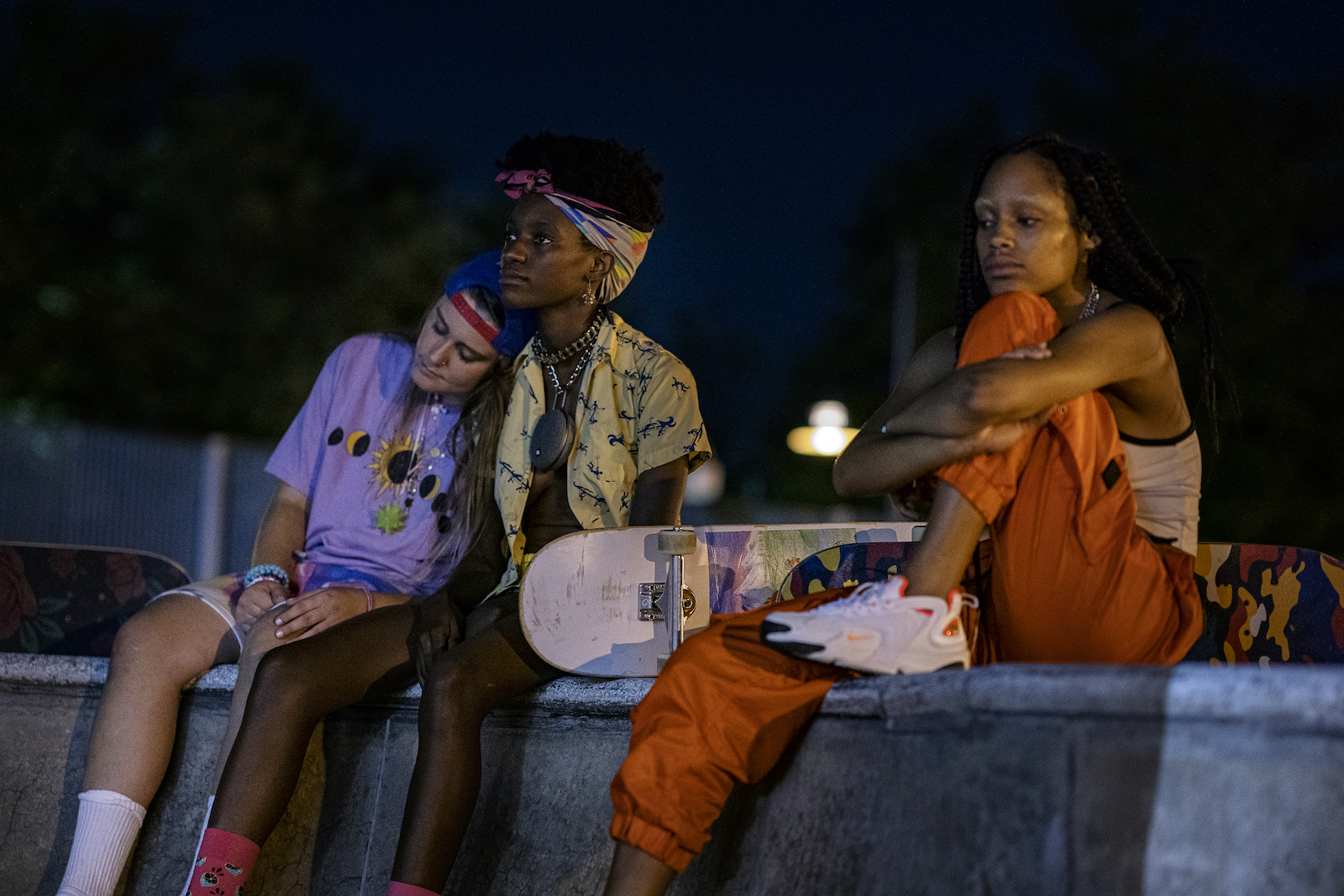
“This is a microcosm of a bigger idea,” Crystal says of the series, “to show that we can do things we think we can’t do.”
Throughout each reality-packed episode, we experience the lives of these women via director Crystal Moselle’s fictionalized, documentary-style storytelling. It’s hard to believe these characters had no previous acting experience, as they expertly tell their own stories on screen. With a female led team behind the lens, Betty translates the encouragement between friends into a picture of loyalty that only falling on your ass and beating the patriarchy can form.
Betty comes directly on the heels of Moselle’s notorious film, Skate Kitchen. Having met Nina Moran and Rachelle Vinberg (future leads) on the subway, the movie was made and named after their real-life skate crew. Skate Kitchen was so highly praised that, alas, a follow up had to be conceived. Betty serves as the deluxe expansion-pack, following the same characters but with a fresh, upbeat story.
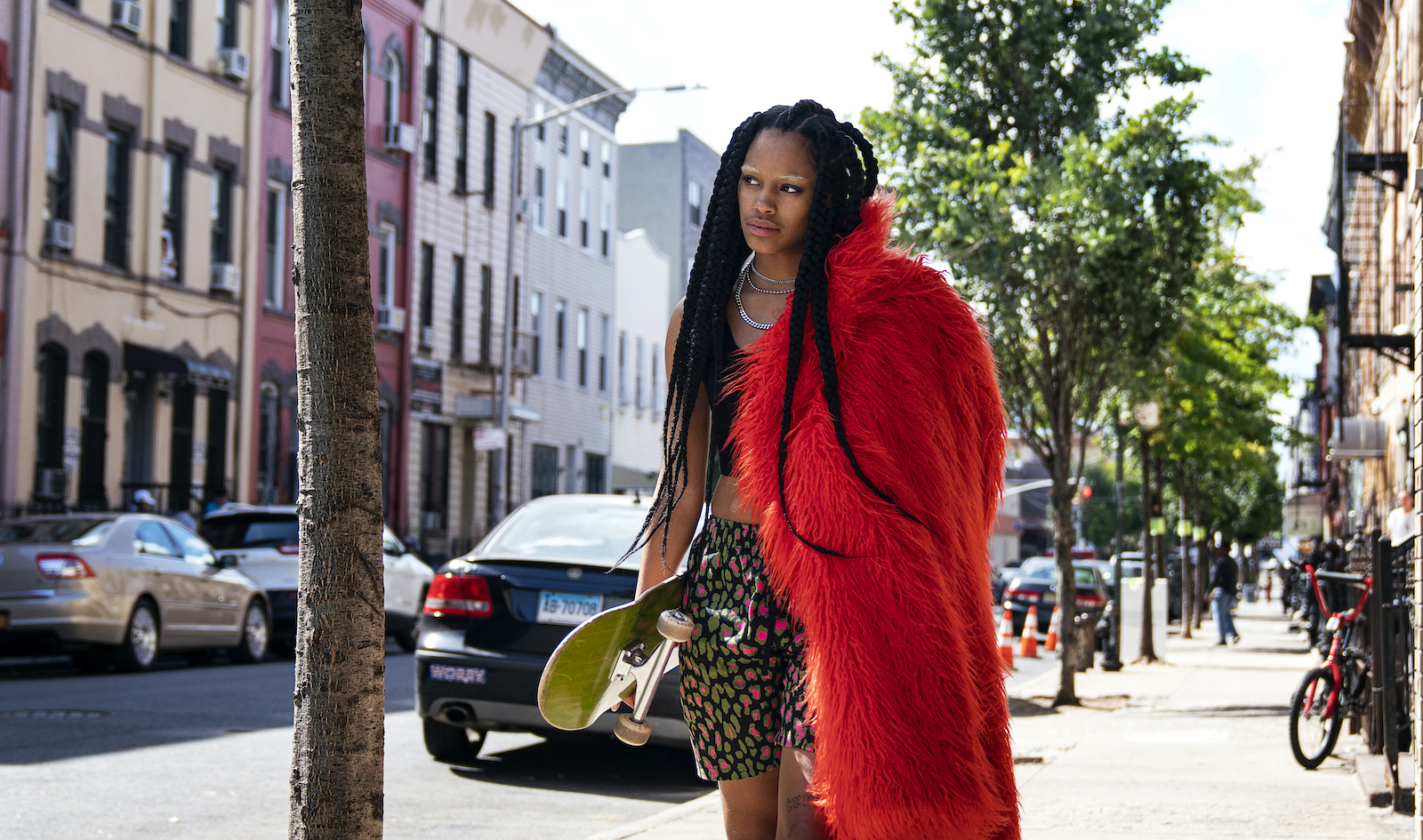
“We wanted to rip your heart out and take it with us on our ride, rather than just linger in it.” Moselle says of the differences between the two projects.
Artistically, the show is dazzling and brings emotions to life on the screen. With a background in both live performances and on-screen orchestration, composer Aska Matsumiya, scores with an innovation that allows the music to be a major part of the storyline. Fueled by a decade-long partnership, Moselle works closely with Matsumiya to invoke an energy that puts you right there with the characters on the edge of a cliff, hopping a fence into the wild.
Premiering a new episode every Friday on HBO, Betty will leave you aching to be a part of the revolution that calls for inclusivity, vulnerability, and power.
When I spoke with Moselle and Matsumiya, they practically finished each other’s sentences. Their roles behind the scenes are so closely intertwined that you couldn’t possibly interview them separately. Enjoy our full, spirited conversation about Betty, their relationship with the cast, and finally bringing females to the forefront of the industry.
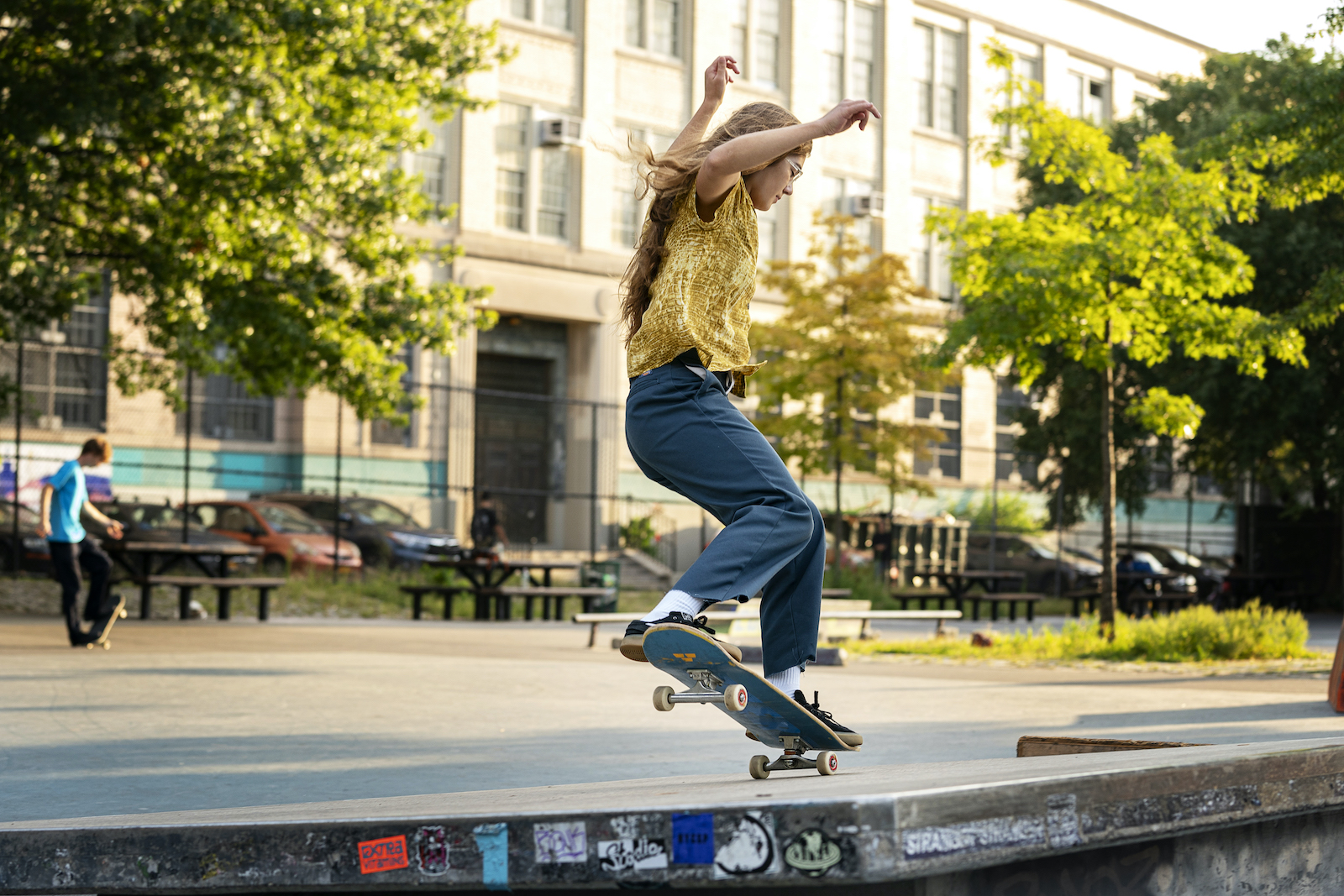
You guys have collaborated in the past, since 2010 it seems – what sorts of things have you learned about each other that benefit the partnership?
Aska: 10 years, going strong!
Crystal: I feel like it’s been longer than that…we met in 2005. We were friends before we were collaborators. We always had these big ideas of what we wanted to do together. I remember Aska’s mom once was like, “You guys are crazy!”
A: Yeah! Crystal was like, “I’m gonna make a movie someday, and Aska’s gonna make music for it.” My mom was like, “That’s really sweet…”
C: We started working on short projects together. At that point I was working on commercials, and would have Aska do a lot of the music for me. I’m totally obsessed with…Aska do you have the teacup?
A: What?
Crystal proceeded to play percussion on her coffee cup with a fork, and Aska laughed.
C: She used a cup to make a sound for something we made, and I loved it!
A: Well, it sounded better than your fork…
C: Well you weren’t prepared so…
A: *laughs* It’s hard to say what we learned from our partnership because outside of making films, we talk every day. She’s my best friend. So we kind of have a partnership in the way we exist in this world together. I like to be really close to the musical part, which makes sense why we work so well together.
They are super similar, Betty & Skate Kitchen- but tones are different. What did you want to carry over from Skate Kitchen into Betty and what did you want to change?
C: We really loved the music in Skate Kitchen, but Betty is a little bit more fun, empowering, and optimistic. Skate Kitchen was a bit more nostalgic, a coming of age film.
A: We wanted it to have more edge and way more energy. The city life, the girls living together in New York City. Skate Kitchen was more emotional.
B: Yeah [Betty] was more motivating. We wanted to rip your heart out and take it with us on our ride rather than just linger in it.
C: Usually we’ll talk about the instruments that we like, and while I describe them really badly…
A: I noticed that Crystal loves raw sounds. [She doesn’t] like it when it’s too clean; she wants it to be existing rather than perfect on the stereo.
C: I like electronic sounds too, but I want it to feel more analog and imperfect. As if it’s in the room with you.
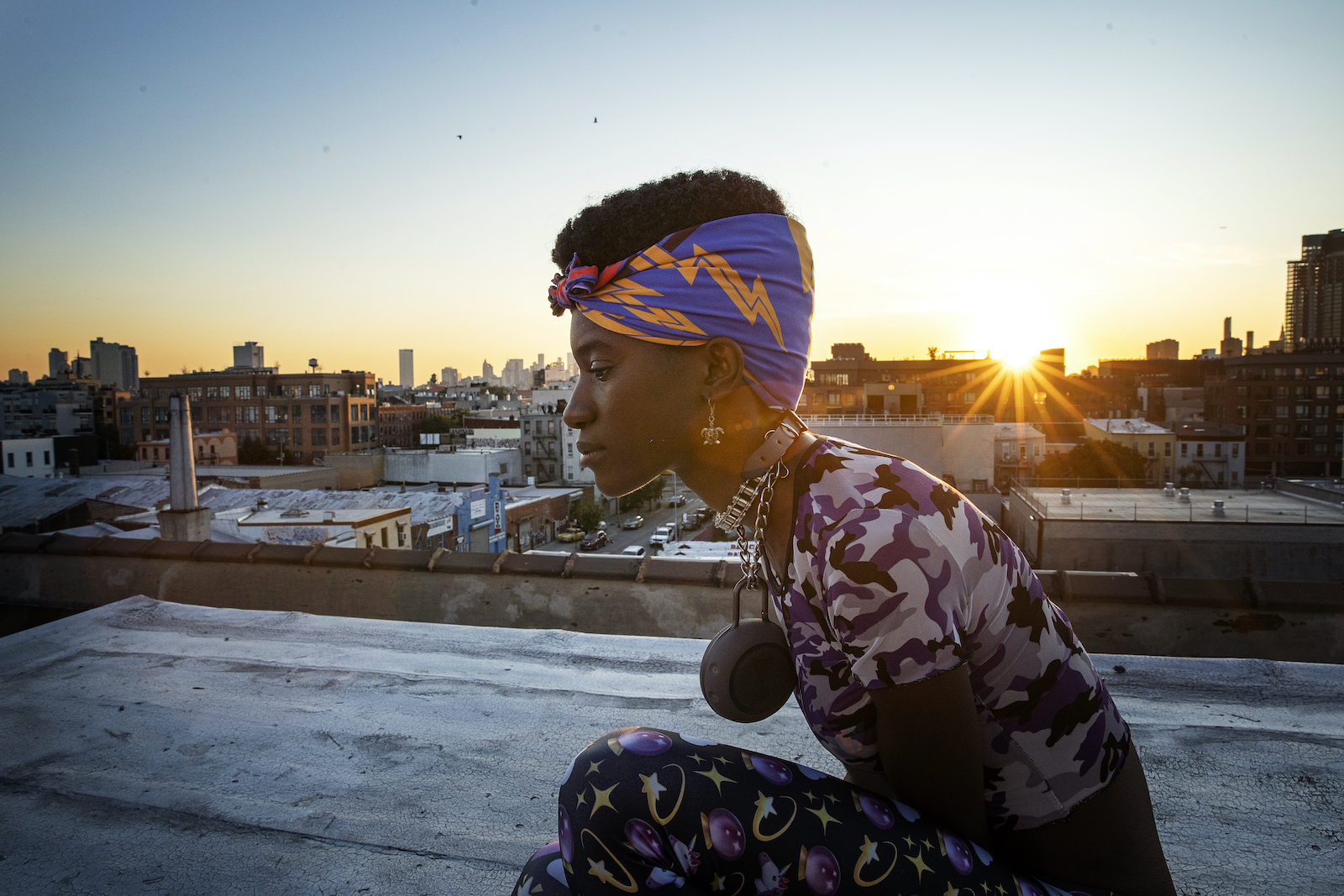
You two seem to have your own language; that symbiosis comes across in the artistic choices! Can you describe your favorite scene and the feeling you were trying to have come across?
A: I never really score to scenes. I compose lots of music and then Crystal plays it for the editor; they decide what music fits where.
C: Well, then you’ll go in and make it match the scene better. But that’s just my process. I personally like to mess around with the music and the edit, a lot.
A: I’ll add different layers! My favorite scene is [editor’s note: not out yet!]
C: My favorite scene is in Episode 3, when they’re having a sunset, skateboard session. Aska’s music works so well because my music has a lot of breaths. There’s a lot of moments where you’re just existing with the characters. That’s where her stuff really shines and brings you into their world.
You’ve performed in art galleries and historically, your music has been closely tied with art – when composting, do you see color or visuals? What’s your process?
A: With Crystal’s stuff, we’re so connected in so many ways that when she sends me a script, I already see what she’s going to direct. I know her so well, I know what kind of images she has. When I read the script for Skate Kitchen, I felt like I had already watched the whole film. When I talk to her or read something, I normally start to hear the music.
C: I always send her dailies early on, and she understands the feeling and goes from there.
Crystal: I’m sure you work very closely with the editor because these shots are amazing and so thoughtful – what feeling does it produce for you to have visuals overlap over dialogue the way that they do in Betty?
C: It depends on the scene.Usually, it’s showing these moments that happen…like with memories: we don’t remember a full scene of something from start to finish but [there are] things that stand out in your mind and help you form them. So I guess it’s the way you’d see a memory.
Tell me about the character developments from Skate Kitchen to Betty: Nina sounds different and Moonbear has a different name! It seems you rewrote the storyline, what did you want to focus on more?
C: Well, we had a writer’s room for Betty which we didn’t have for Skate Kitchen. Originally, we were going to start from where we left off in Skate Kitchen, but then we thought for a TV series it would make the most sense to remake an origin story. A group of women coming together: what would that story be? It made sense to deter away from the movie so we could make our own rules but still have the same world and have the same characters.
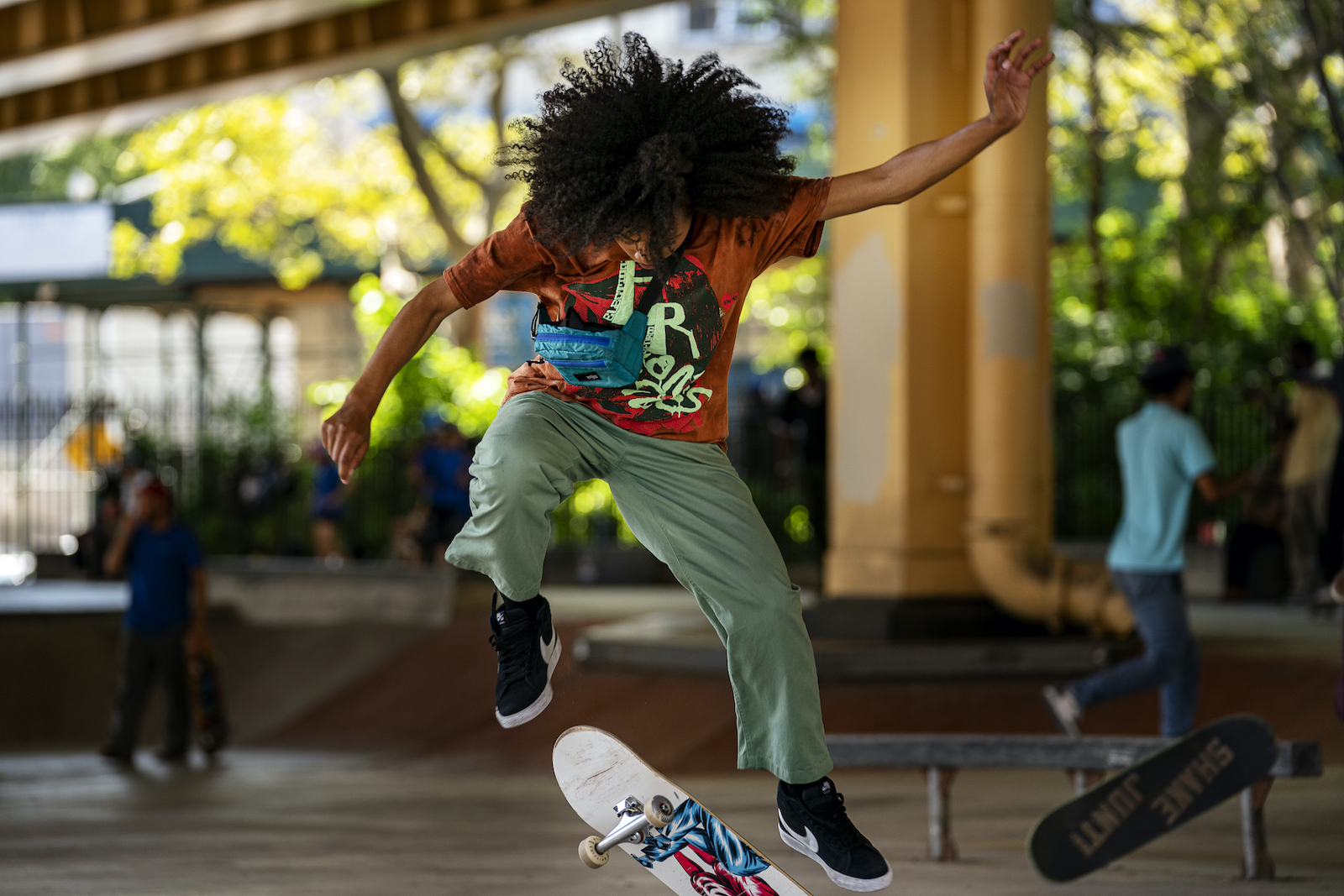
I’m sure you’ve had many questions about the challenges of working with “non-actors,” so to speak. But I’m curious, did you do any work with the cast behind the scenes in order to get the type of footage that you wanted?
C: Oh yeah.
A: *laughs* I’m laughing because Crystal was living with them. They were in Crystal’s life, literally.
C: They were a big part of my life, and a big part of the process. They were in it every step of the way. It’s the only way I can do it, to make it feel authentic. It’s very important to me to feel like these things that actually happened to these girls. Or more that…these girls react authentically to these things that are happening to them. That obsession of mine with finding realism is a work in progress. But yeah. They’re always there giving their opinions *laughs* and I welcome with open arms any opinions at all. Even if they’re crazy.
I want to talk with both of you about being a female – in the industry – which I’m sure is a question you’ve heard before. But it is something to talk about as we face challenges and many industries are still very male-dominated. Do you think we’re over that hump yet? How can we spotlight female directors, female composers, and female-led projects more?
C: It’s just about giving them more chances. Trusting them. Taking meetings with them: when you’re used to taking meetings with your boys, take meetings with women that want the job as well. A lot of men will get opportunities to direct some big Hollywood film even when it doesn’t make sense with their history; but women still hear: “I don’t know if we’ll be able to trust her to do this, looking at her other films…” Just trust us more. There’s such a strong boys’ club. But you know what? Try something different. One person on your team. Or at least take the meeting. See their point of view.
You created Ladies Choir, and are now working on a female-fronted tv series. Do you have any thoughts on the benefits of working on an all-female team?
A: It’s a different kind of bonding that you have with all females. It’s definitely disastrous too, but the closeness that you gain from all females is different than you have with male and female. The Betty team has so many females…
C: It’s females, it’s diverse, it’s people who understand the world. That’s important to me, that the people working on the show aren’t judging what’s happening. It’s a different kind of show.
A: You know what I think it is? When you work with other females we empower each other in a different way.
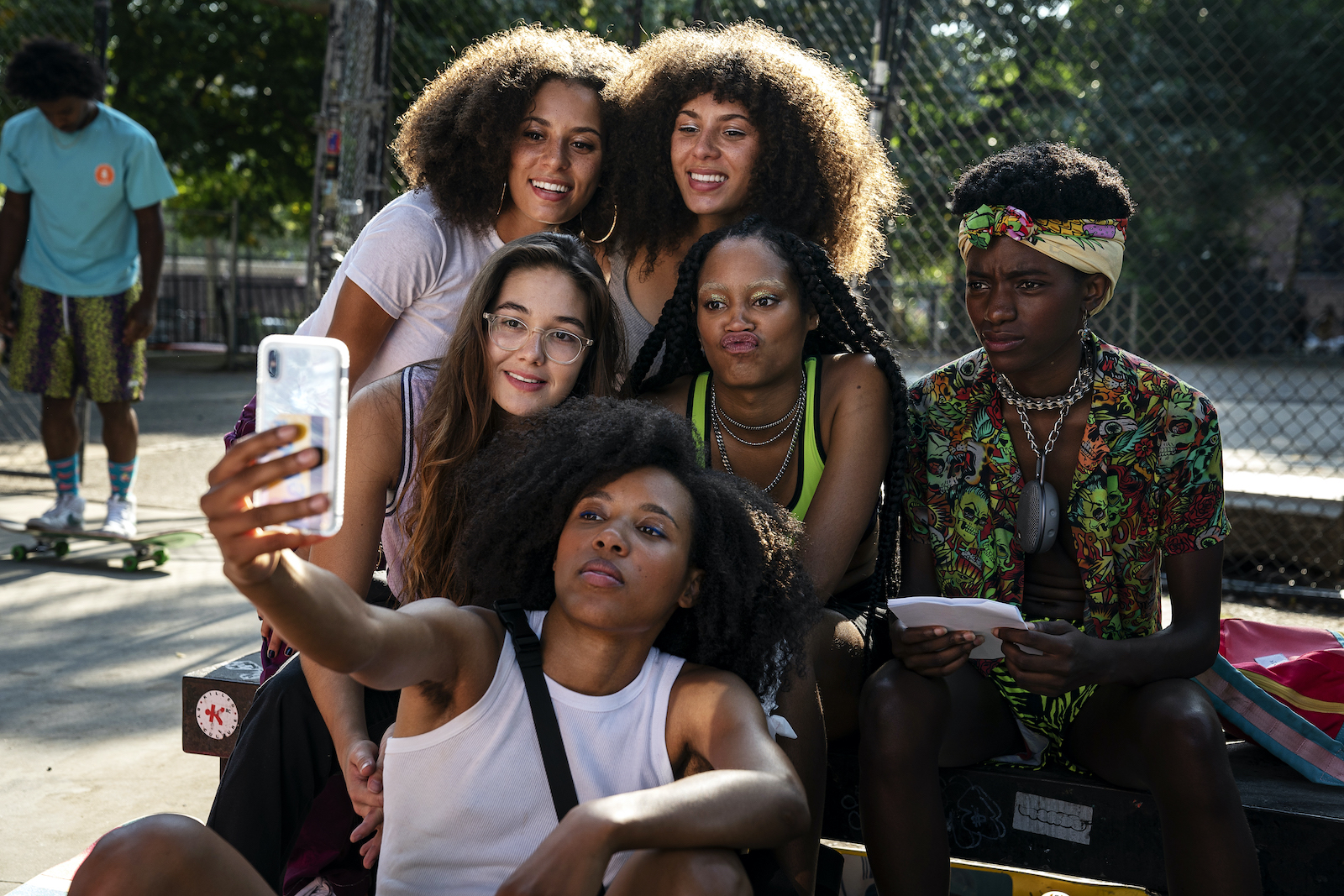
Do you think people have low expectations for women?
*simultaneously*
C: No.
A: Yes. I think they definitely do. It also comes from history! We haven’t been working as long as men have. It’s changing slowly but it’s based on that fact. I don’t think it’s something that is negative.
C: I almost feel like they have high expectations [for women] so we have to work harder to prove ourselves. The judgment on our work is harsher.
I mean, there’s definitely a prejudice with girls in sports that you guys rip apart in both Betty and Skate Kitchen. That was one of the first things that I connected with when watching it. What do you want people to take away from Betty?
C: I want people to be inspired, to feel optimistic. This is a microcosm of a bigger idea to show that we can do things that we think we can’t do. We have the belief that we have these places we have to stay, these boxes we’re confined to; I hope it can inspire people to break down those walls. And that goes for men, women, anyone.
A: What I really love about Betty is the fact that its everyday life. It’s not some crazy drama that’s so surreal. Everything has to be so extreme these days to catch peoples’ attention and I love that Betty is your daily life. Those things that actually get you down or make you happy. It’s finding those special things; every day that we experience is so special.
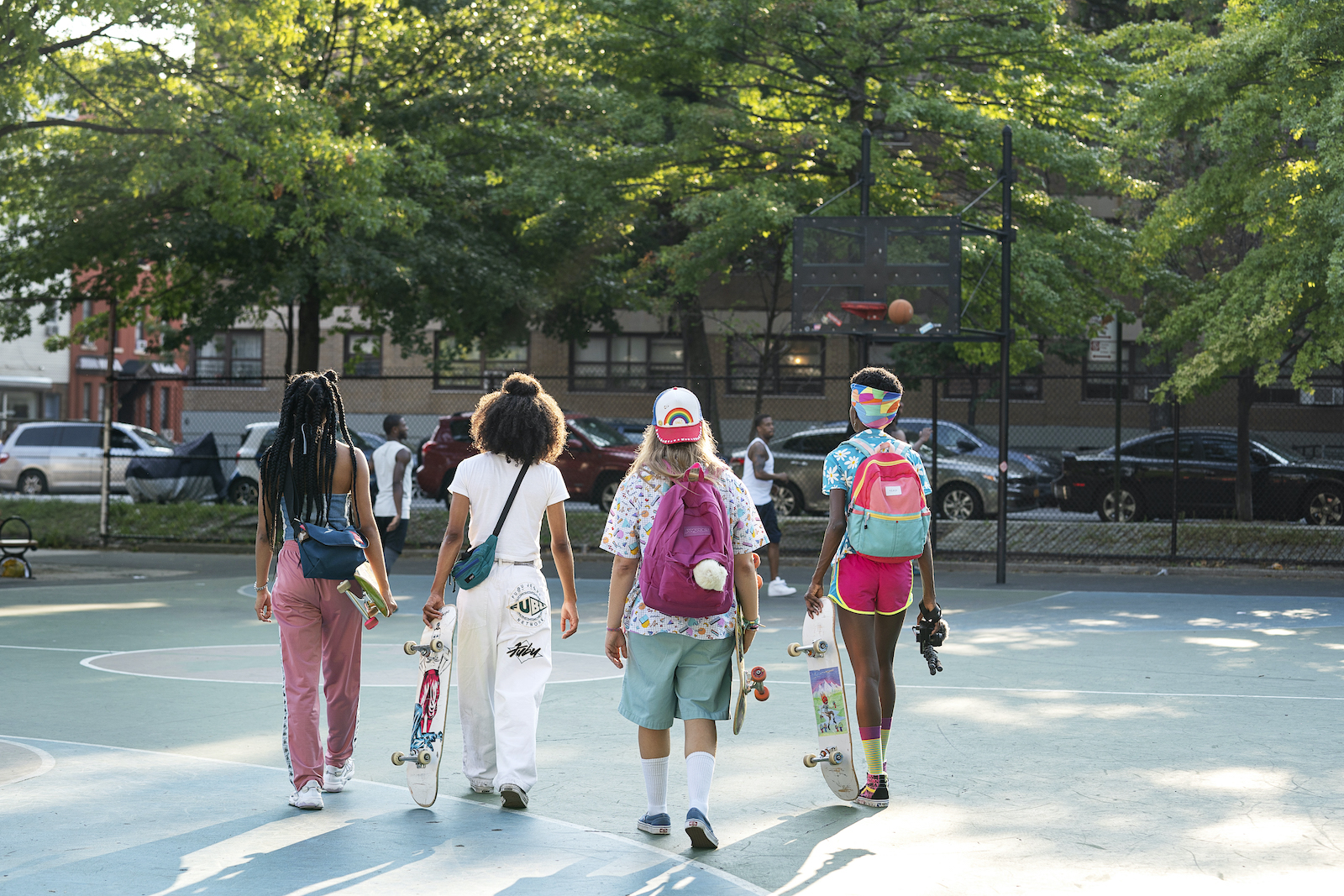
CONNECT WITH BETTY
photos/courtesy of Warner Media Group
story / Ariana Tibi
